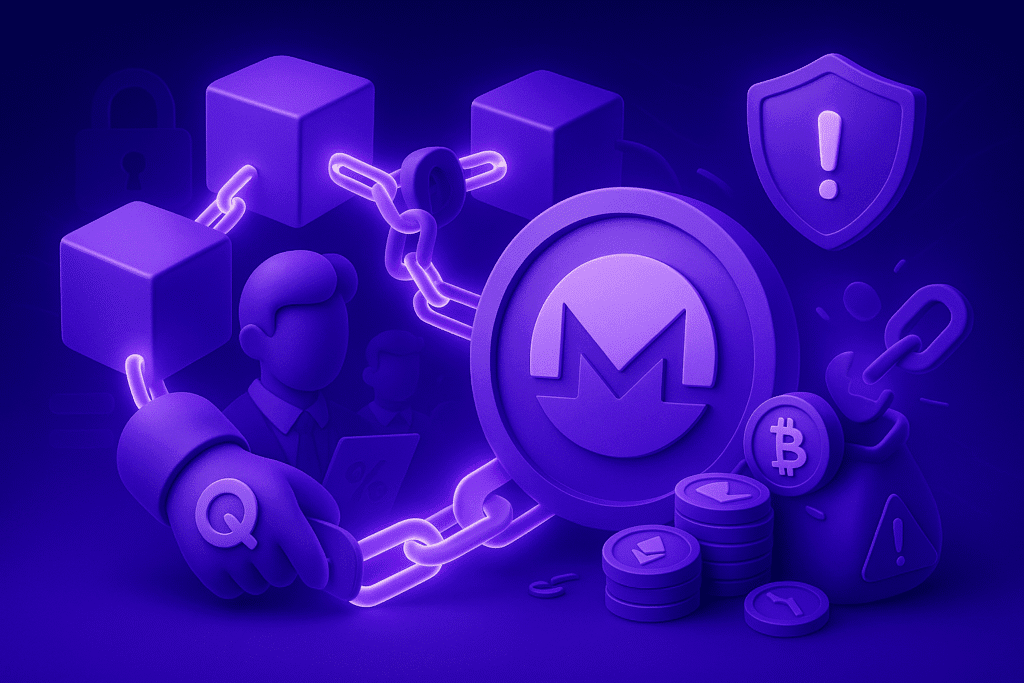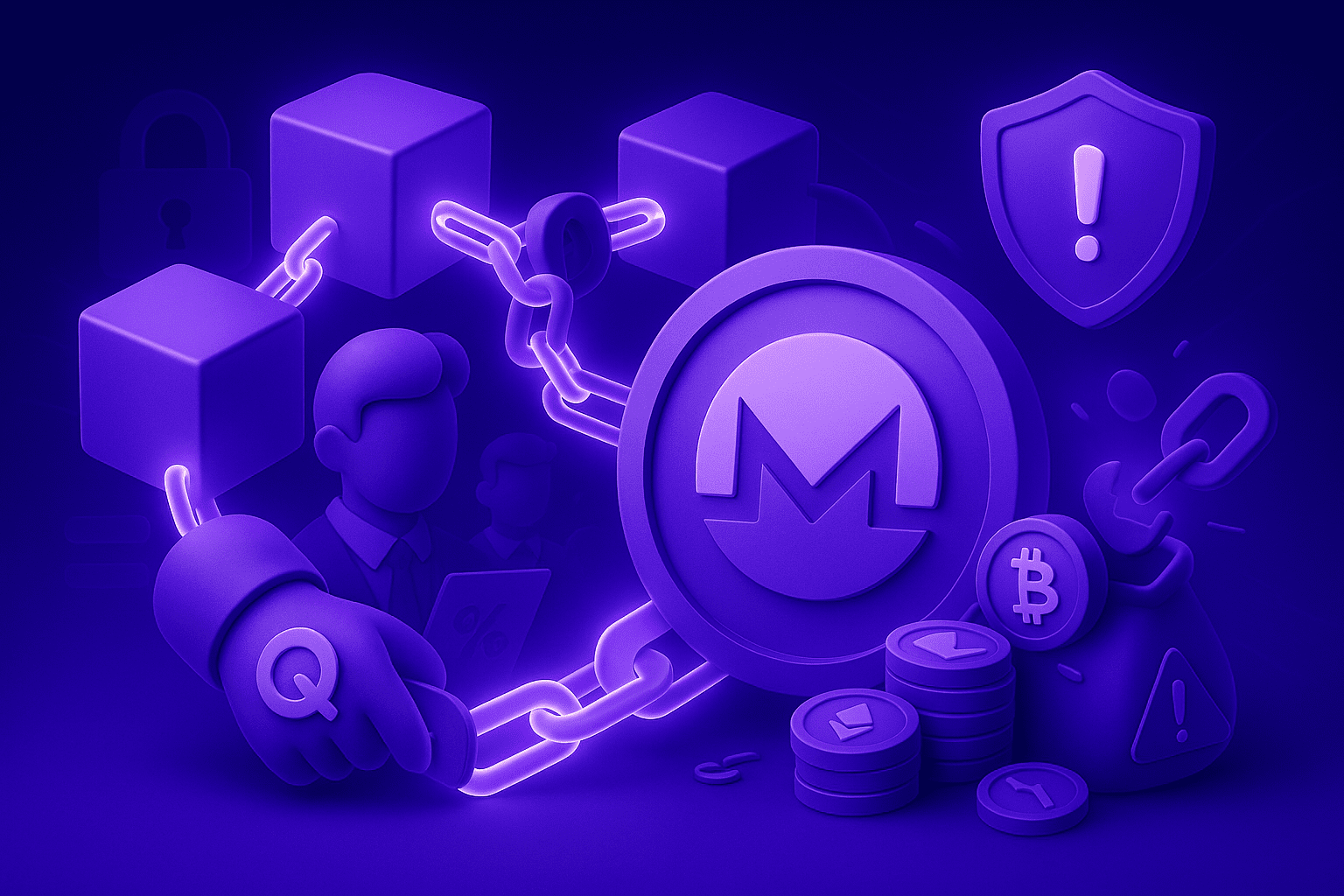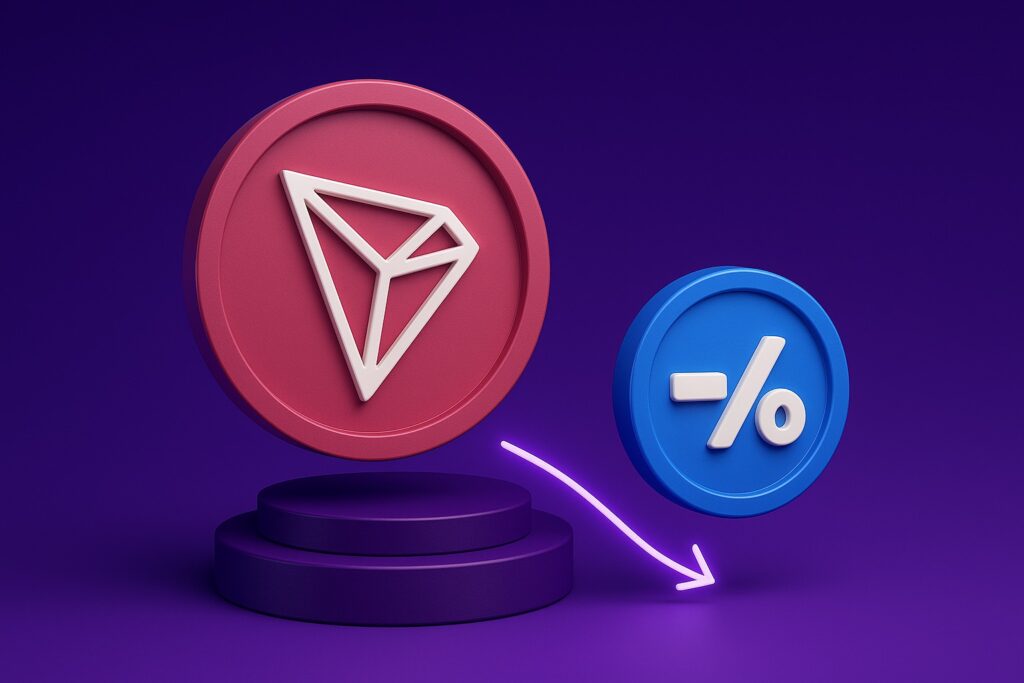Table of Contents
show
Qubic Claims Majority Control of Monero’s Network — Community Fears for Decentralization
What Happened
- Qubic, led by IOTA co-founder Sergey Ivancheglo (aka Come-from-Beyond), claims it has surpassed 51% of Monero’s total hashrate — a level that could allow it to manipulate the network by rewriting blocks, blocking transactions, and executing double-spends.
- From May to July, Qubic’s share reportedly grew from under 2% to over 25%, and then quickly crossed the majority threshold.
- The takeover was made possible through its “Useful Proof-of-Work” (uPoW) model: miners are rewarded in XMR, Qubic converts that to USDT, and then burns QUBIC tokens — strengthening its own token economy.
Market and Expert Reactions
- Monero’s (XMR) price dropped 6–8% in a single day and up to 16% in a week.
- Ledger’s CTO estimated the cost of maintaining majority control at around $75 million per day — potentially profitable in the short term, but severely damaging to network trust.
- Other experts remain cautious. Some note that reorganizing six blocks might be more of a statistical fluke than a sustained attack. Archer (SeraiDEX) and Zhong (SlowMist) have suggested the claims could be overstated.
- Certain reports suggest Qubic may have briefly reached 52–53% hashrate, fueling further controversy.
Why It Matters
- Monero is one of the leading privacy-focused cryptocurrencies, optimized for CPU mining via the RandomX algorithm. Qubic’s move shows that even a relatively small but well-organized network with the right economic incentives can take over a much larger one.
- Qubic calls its operation an “experiment” — a stress test intended to make Monero more resilient to such threats in the future.
- Still, the situation highlights a critical vulnerability: centralized control over hashrate is a direct threat to blockchain integrity — even in privacy-centric projects.
This incident is a wake-up call for Proof-of-Work networks, especially those relying on CPU-friendly algorithms like RandomX to maintain decentralization. Qubic has proven that well-structured economic incentives can attract massive resources and shift power dynamics — even in highly secure ecosystems.
It’s more than just a headline — it’s a lesson: blockchain security depends not only on code, but also on economic game theory. Monero and similar projects must rethink safeguards against hashrate centralization and strengthen distribution mechanisms.







I was curious if you ever thought of changing the layout of your site? Its very well written; I love what youve got to say. But maybe you could a little more in the way of content so people could connect with it better. Youve got an awful lot of text for only having 1 or two images. Maybe you could space it out better?